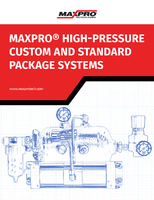Modular 'Micro-Mild' Hybrid Technology Offers a Compelling Cost-Effective Route to Reducing Co2 Emissions in Family Cars Says Controlled Power Technologies
Share:
Incremental manufacturing cost is Euros50-60 for every 1 per cent reduction in CO2 emissions compared with the Euros200-500 per cent typical for full hybrids. Further value enhancements are possible if the automotive industry were to standardise around the proposed 48 volt power networks developing in Europe. To deliver credible customer pricing the industry needs technical solutions that offer good value for family cars says the low carbon specialist, claiming there is insufficient electrification of drivetrains in low cost vehicle segments to make CO2 targets affordable.
Currently the most cost-effective solution for reducing CO2 emissions is modular 'Micro-Mild' (MM) hybrid technology, based on highly boosted and radically downsized gasoline and diesel powertrains. For further CO2 reduction and economies of scale the automotive industry should also press ahead with the standardisation and implementation of the proposed 48 volt vehicle power network being championed by some European vehicle manufacturers.
This is the message from Controlled Power Technologies (CPT), one of the technology companies invited to join automotive engineers, vehicle manufacturers and other low carbon vehicle specialists gathered in London today to discuss the future of electric vehicles. Guy Morris, the company's engineering director and chief technical officer, will deliver a technical presentation setting out low cost solutions focused on the innovative application of switched reluctance electric motor technology and low voltage power electronics to address the as yet unsatisfied needs of high volume manufacturers offering affordable family cars.
"For a 15-25 per cent reduction in CO2 emissions using micro-mild hybrid technologies we have established an incremental cost to the manufacturer of between Euros750 and Euros1500," says Morris. "This compares favourably with the 8-20 per cent typical of CO2 emissions benefit offered by mild hybrids, full hybrids and plug-in hybrids, at a much higher manufacturing on-cost of between Euros1,600 and Euros10,000."
CPT technology development is primarily focused in the 10 to 50 volt range, where modest voltage increases offer significant efficiency improvements, with less than 60 volt operation providing intrinsic safety benefits compared with high voltage power networks. Such networks typically operate at up to 130 volts for mild hybrids, 200-270 volts and above for full hybrids (HEVs) and 300-400 volts for plug-in hybrids (PHEVs), and are required in addition to the 12 volt system such hybrids still need to support other vehicle functions.
"In fact, our modular technology is very scalable and also well suited to higher voltages, but currently the most customer benefit is delivered through the optimisation of micro-mild systems," says Morris. "CO2 reduction across a manufacturer's entire vehicle range requires a comprehensive strategy, and this means delivering customer value in all segments of the car market."
CPT's Micro-Mild hybrid solution for significant CO2 reduction facilitates radical engine downsizing, but also avoids compromising vehicle performance and especially torque response. The combination of a highly responsive electric supercharger with the world's most powerful 12 volt integrated starter-generator (ISG) and low cost energy recovery and storage, using advanced lead acid batteries, offers a competitive, cost-effective solution in the micro-mild hybrid segment.
"Early target technologies costing less than Euros20 for every 1 per cent reduction in CO2 emissions have already been adopted by vehicle manufacturers. This includes low viscosity oil, longer gear ratios and starter motor based stop-start. Raising this technology spend towards Euros50 for every 1 per cent reduction in CO2 emissions buys greater, yet still affordable, efficiency benefits for both the customer and the vehicle manufacturer, who also avoids hefty EC fines. It can also significantly enhance the value of highly boosted and radically downsized engines, which underpin most European manufacturer CO2 reduction strategies. And it reduces the need for more complex and expensive mild hybrids, full hybrids and plug-in hybrids, which would otherwise be essential to meet brand average targets."
CPT's production ready technologies have been incorporated into its 'low cost' 'low consumption' 'low carbon' LC Super Hybrid technology demonstrator, which recently made its debut at the AVL Engine & Environment conference in Graz, Austria. AVL has been commissioned to build CPT's latest state-of-the-art concept vehicle, which is now undergoing final shake-down trials and will soon be available for evaluation by vehicle manufacturers.
The demonstrator, developed in co-operation with the Advanced Lead Acid Battery Consortium (ALABC), will improve significantly on the energy efficiency of a gasoline engine variant of the VW Passat, a large family saloon which is already a class leader in CO2 emissions. With performance similar to that of the 1.8 TSI and 2.0 TDI models, but even lower CO2 emissions and fuel consumption than the current production 1.4l TSI BlueMotion model, the CPT/ALABC demonstrator will provide carmakers with real world confirmation of the potential for this new class of 'Micro-Mild' hybrid vehicle.
"The MM hybrid concept, which was first proposed at the AVL conference a year ago, combines CPT's modular VTES electric supercharger and SpeedStart stop-start technologies in a state-of-the-art yet affordable family sized vehicle," says Morris. "The LC Super Hybrid validates that concept and will demonstrate significantly reduced CO2 emissions combined with excellent performance at relatively low cost compared to full hybrid and range-extended or plug-in HEVs. ALABC carbon-enhanced lead-acid battery designs complement the low voltage technology helping to maximise energy recuperation during deceleration, fully realising the potential in our stop-start and engine boosting technologies by enabling high power generation and electrical energy recovery as well as outstanding torque response."
Following vehicle evaluation at 12 volts the next step for the LC SuperHybrid is to demonstrate the benefits of the CPT technology in a 48 volt power network vehicle system. If adopted as a global industry specification, such power networks would facilitate the development of standardised high volume and highly affordable enhanced lead acid battery modules. It would also offer a potential mass market opportunity for high end lithium-ion based energy storage solutions, of a similarly standardised modular configuration. Modules of 48 volt standard configuration could form the building blocks for lower volume electric vehicles, where battery system costs are currently such a dominant constraint to vehicle affordability.
"Today, electric vehicles require significant government subsidies to make them affordable to the mass market," says Morris. "Progressive improvements in standardised battery technology will help. Meanwhile, the availability of advanced powertrains with enhanced low voltage electrical architectures and micro-mild hybridisation can already demonstrate significant CO2 reductions for current internal combustion engine vehicles. These more value driven technology platforms are able to fill the existing mild hybrid affordability gap and have the potential to further evolve to satisfy the majority of mass market hybrid requirements in the near future; particularly when enabled by cost effective, modular and hence scalable, energy storage solutions."
The UK engineering conference has been organised by the Automobile Division of the Institution of Mechanical Engineers (IMechE) and is co-sponsored by the Institution of Engineering Designers (IED), Low Carbon Vehicle Partnership (LowCVP) and Society of Motor Manufacturers and Traders (SMMT). Entitled "The Electric Vehicle Reality" it will review the cost implications and other developments as manufacturers start to bring electric cars to the mass market. Guy Morris' presentation will be delivered at 14:15 on 22 September 2011. Other speakers at the conference will represent Arup, Cenex, EValue8, Ford, Ricardo, Tata and TRL. The venue is Broadway House in Tothill Street, London. Further details at http://events.imeche.org/EventView.aspx?code=s1609
CPT is an up-and-coming, award winning, high tech company specialising in cost-effective CO2 reduction measures for the global automotive industry. Its work also includes thermal energy recuperation considered by many to be the next and perhaps final energy recovery challenge for the internal combustion engine. Engineering competencies include low voltage power electronics, advanced control software and the application of low voltage electrical machines to vehicle powertrains including full hybrids with range extenders. The company was established in 2007 as a management buy-in funded by venture capital initially to acquire advanced powertrain technologies from Visteon Corporation and its technology development partner Emerson Corporation. CPT comes with a highly experienced team of automotive engineers and is backed by Turquoise Associates and other prominent investors specialising in the energy and environmental sectors. Further information on CPT is available at www.cpowert.com.
The ALABC is a research consortium originally formed in 1992 to advance the capabilities of the valve-regulated lead acid battery in order to help low cost electric vehicles become a reality. The research resources of the world-wide membership of ALABC are pooled to carry out a large program of R&D which would otherwise not be possible. The ALABC is managed by the International Lead Zinc Research Organization, Inc., based in Research Triangle Park, North Carolina. ALABC membership currently stands at 54 organisations. Further information is available at www.alabc.org.
Media Contact: Journalists wishing to drive the new 'LC Super Hybrid' demonstrator should contact Rob Palmer on +44 1582 763255 or +44 7768 242761 or email: rpalmer@palmerpr.com.
Controlled Power Technologies' LC Super Hybrid technology demonstrator; with performance similar to that of Passat 1.8 TSI and 2.0 TDI models, but even lower CO2 emissions than the current production 1.4 TSI BlueMotion model, the demonstrator will provide carmakers with real world confirmation of the potential for a new class of 'Micro-Mild' hybrid vehicle.
Rob Palmer, Palmer PRT: 01582 763255 H M: 07768 242761
Old Crawley Road
Horsham
West Sussex
RH12 4RUT: +44 (0)1293 852233, F: +44 (0)1293 852234 www.newspress.co.uk




